Isis in Ramadi: The terrifying truth behind Islamic State's latest capture

Any celebrations after the US raid that killed high-ranking Islamic State (Isis) official Abu Sayyaf have likely ground to a halt after reports of the group's take-over of Ramadi.
IS's takeover of the Iraqi city, despite government officials' downplaying of the event as a "setback" is a major deal. Worryingly, IS's seizing of Ramadi will likely serve as a hugely significant victory for the group — both practically and symbolically.
The fact that IS was able to take Ramadi for any period of time is more than a fleeting victory for the group, but perhaps its most important one since its takeover of Mosul. Furthermore, IS achieved this even amid the international campaign declared against it, further bolstering the morale of both its fighters and leaders.
Symbolic Value
To better understand the importance of IS's takeover of Ramadi, one must understand the group's history in the area, in times when it was called al-Qaeda in Iraq (AQI).
Ramadi is both the capital and largest city in Iraq's Anbar governorate, located just 70 miles from Baghdad. The city's region was once home to the "Anbar Awakening," a successful coalition of Sunni groups formed in 2005 in opposition to AQI (then headed by Abu Musab al-Zarqawi).
Through risky negotiation, training, and financing by the US military—often viewed as an equal enemy to these tribes as AQI—the US managed to find a highly effective, moderate ally in its fight against extremist forces in Iraq. Well-supported Awakening forces managed to keep the city of Ramadi safe from AQI for years.
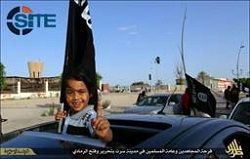
In a war heavily coloured by symbolism, the very idea of the Awakening coalition was a weapon against AQI in itself. The cooperation of these important Sunni tribes perpetuated the message that the US —and West, for that matter—was not at war with Sunni Muslims, but against the Sunni jihadists represented by AQI. This message, in turn, would also give Sunnis an alternative to fighting with AQI, and challenge the group's message that it represented the only valid Islamic path toward peace.
Though populated by Sunnis, the Anbar Awakening, based in Ramadi, was AQI's main obstacle in preventing its growth. For several years, much of Zarqawi's AQI and its allied groups focused mainly on fighting against Awakening forces in Ramadi.
However, funding and support for Anbar's Awakening forces was eventually diminished when those responsibilities were transferred to (but not met by) Iraq's relatively new Shia-majority government and its then-Prime Minister, who had long expressed blunt reservations toward the Sunni coalition. Now, with no support from the Iraqi government, and bitter animosity from an empowered IS (along with the group's control of the nearby city of Fallujah), those once comprising or supporting the Anbar Awakening coalition have found themselves abandoned.
Therefore, IS's takeover of Ramadi is not only a huge strategic victory in gaining the largest Sunni city in Iraq, but also a symbolic one, resonating as a triumph over what was once the group's main rival.
A Persistent Campaign
The IS takeover of Ramadi was presented in media reports as an unforeseen surprise, similar to the reports of IS's sudden takeover of Mosul exactly a year ago. However, it should be far from surprising.
The group's taking of the city was accurately described by an Anbar official as a "gradual deterioration." For more than two months, IS has focused on its fight in Anbar more than any other location within its territory in Iraq and Syria, with daily progress reports and propaganda devoted to hyping up the initiative. With that, Ramadi and its surrounding areas have been locations of regular IED, ambushes, and other attacks on a near daily basis.
Since early March, IS has focused on Ramadi. On March 11 alone, IS clearly showed its intentions when it executed five suicide bombings by Belgian, Australian, Caucasian, Syrian, and Uzbek fighters in Ramadi. The next day, another suicide operation was performed by a Saudi. Two days later, on March 14, the group released photos of two additional suicide bombings by a Jordanian and Syrian in Ramadi.
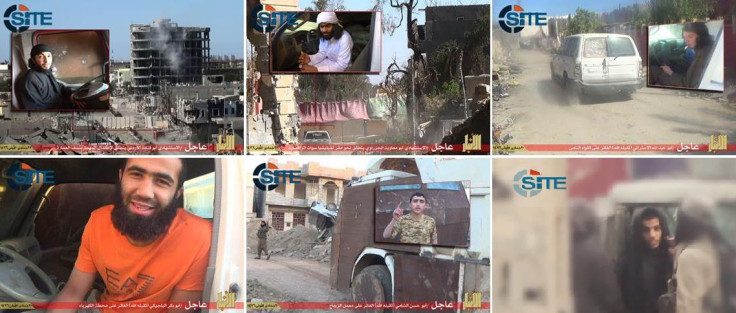
In addition, IS repeatedly released videos, photos, and statements of large-scale attacks in Ramadi, exhibiting the group's strong presence and military infrastructure, while referring to the district as "an important stronghold" for the Iraqi army and tribal militias.

Illustrating the importance of Anbar, on 27 April 2015, IS fighters on Twitter even circulated a photo of what appeared to be a documented order from IS's "emir [leader] of the believers," announcing a "call of mobilisation" to Anbar and Salah ad Din governorates:
...the parties from among the Cross worshippers, the b*****ds of the Rafidha [Shi'ite], and the Arab apostates have gathered its knights and men, and want to fight Allah and His Messenger and deface what have been established of the landmarks of this religion and to assault the honor of the Muslims, and then they have assaulted our brothers in both provinces of al-Anbar and Salahaddin.
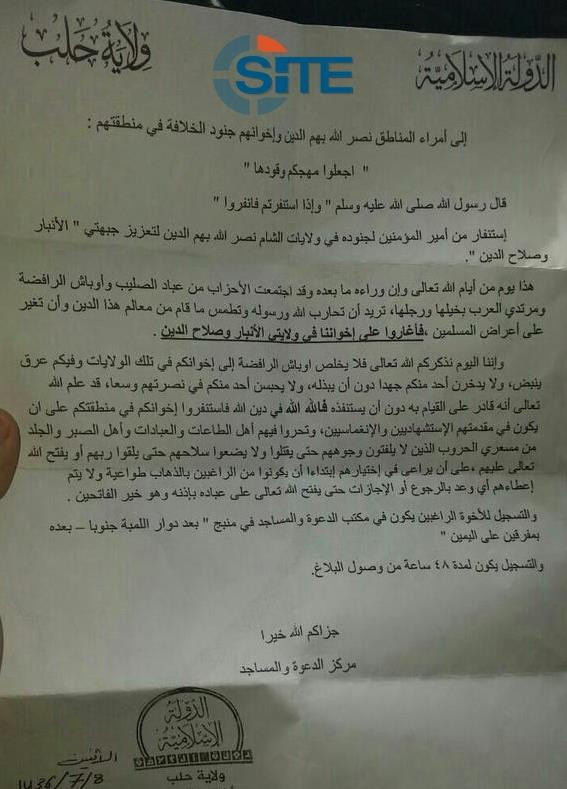
IS Continues to Progress in Iraq
Ramadi is not the only setback in the fight against IS in Iraq. The group has demonstrated the same unrelenting pursuit of Beiji, a city in the Salah ad Din governorate and home of Iraq's largest oil refinery. This past Monday alone, IS reported a suicide bombing by a German fighter in the West of the city, adding yet another name to numerous other suicide attacks made on the city and its oil refinery in recent months.
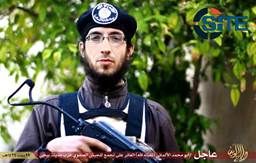
The White House's recent assertion that there is "no denying we will help the Iraqis take back Ramadi," echo those made after Mosul was taken over. Yet IS continues to maintain Mosul in ruthless, remorseless fashion, killing anyone who doesn't its rules.
Such constant states of dispute bring into question the US government's assertions that its strategy in Iraq is working. The US Department of Defense (DoD) recently released an article quoting Marine Corps Brig. Gen. Thomas D. Weidley, who serves as chief of staff of Combined Joint Task Force Operation Inherent Resolve, as stating:
We firmly believe [Isis] is on the defensive throughout Iraq and Syria, attempting to hold previous gains, while conducting small-scale, localised harassing attacks [and] occasional complex or high-profile attacks to feed their information and propaganda apparatus.
While it appears too inconclusive for me or anyone else to critically state that IS is winning in Iraq, it may also be an equal stretch for the US government to say that it and its partners are winning. Recent victories in the war against IS, like the killing of Abu Sayyaf and reclaiming of Tikrit, are positive steps, but they need to be seen inside a larger body of events and campaigns—not all of which are so positive.
It would be naïve to believe that the killing of Abu Sayyaf has done irreparable damage to IS's oil and other financial operations. This is a non-survival issue for them. Group's like IS, whose leaders are automatically presumed to be in harm's way at all times, are prepared for such events. It is built into their very structure. So, even granting Abu Sayyaf's crucial know-how and network of connections, there will be (if there isn't already) someone to take his spot.
And as for Ramadi, we should not downplay such a symbolic victory for IS. Since its takeover of Ramadi, social media has been flooded with photos, videos, and posts celebrating the event—showing children, adults, and fighters from in and outside of Iraq.
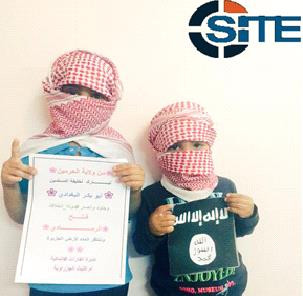
This victory will be a goldmine for the group—both in terms of tactical positioning and recruitment appeals. These things considered, we should hold back on any victory laps until solid, indisputable progress is seen.
Rita Katz is executive director of the SITE intelligence group (www.siteintelgroup.com). She has been monitoring terrorist activity and Jihad for more than a decade.
You can find her on Twitter @rita_katz.
© Copyright IBTimes 2025. All rights reserved.






















